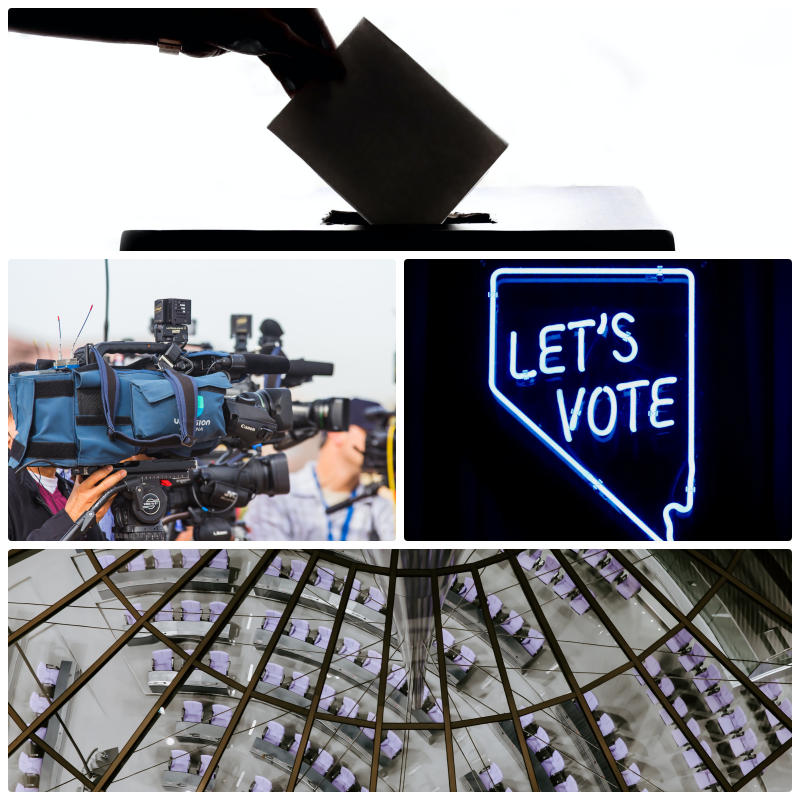Fear of the Future
Germany is not a country overflowing with optimism, at least that’s what we’re constantly told. The concept of “German Angst” over social and political change has been so widely disseminated, it’s simply accepted that Germans are collectively wracked by fear of the future. Many a commentator will sagely point out that there is in fact a German word for this terror, Zukunftsangst (Future Fear). Impressive, but then German has so many words which succinctly describe what requires a sentence in English. German is a nouny language, pointing that out is the equivalent of telling people that forests have a lot of trees.
What makes Germany’s fears for the future so different from the rest of the world? The last decade saw the fallout of a major financial crisis, the acceleration of the climate crisis, the rise of the far-right around the world and a global pandemic. It’s quite reasonable to be concerned about what we may face over the next decade, yet it’s Germany that’s perceived as angst ridden.
I suppose in comparison to English speaking countries such as the UK and the US, Germany does look timid. After all, Britain had so little fear of the long-term it voted to dissolve ties with its largest export market and go it alone. Even as the realities of that political earthquake become apparent, there is still a strong enough belief that things will probably turn out ok, despite the empty shelves in the supermarket. The US on the other hand was convinced by the idea that it could reagin its greatness by attempting a radical experiment in government by imbecile. Four years of a Trump presidency wrought severe damage to national institutions and led to the Capitol being stormed by far-right thugs. Maybe I’ve lived in Germany too long, but from where I’m sitting that doesn’t sound like optimism, rather toxic levels of overconfidence.
Currently, Germany’s fears about the future are coalescing around the upcoming election, and specifically the end of Angela Merkel’s time as Chancellor. Lauded for many things during her time in office, one word comes up over and again as Merkel leaves the stage, stability. Above all her successes and despite her failures, she steadied the ship, presided over massive economic growth and managed maintain a level of popularity that few politicians ever achieve, let alone those in power for a decade and a half.
Stability is the most addictive of political offers in Germany, so much so that the CSU (Christlich-Soziale Union) the sister party of Merkel’s CDU, is currently campaigning in Bavaria with the slogan “Damit Deutschland stabil bleibt” (Keeping Germany stable). Even though Germany is facing serious challenges due to the pandemic, a lack of investment in key areas and climate catastrophe, national stability takes precedent. One might wonder how a country addresses these three issues and maintains a very subjective idea of stability among the various parts of German society. Maybe that’s the purest form of “German Angst”.
How does this supposed Angst manifest itself day to day? Do Germans spend their time rending their clothes asunder, weeping and wailing at the top of their lungs? Well, not quite, although I wouldn’t rule anything out. Usually fear of the future is met head on among the population. We all know we can’t control the uncontrollable, but in Germany there is at least hope that the worst effects can be negated. Insurance is one example of this. Most Germans have at least one form of insurance or another and plenty of options should they decide to get more. From massive national providers to small mom and pop run companies, there is an insurance option for everyone. Anecdotally, when I lived in the centre of Augsburg, there was no corner store nearby, but we did have a bakery and two insurance brokers in our street, all three providing various comforts for their angsty clientele.
Germans are also prone to saving their money, 2020 marked the eighth year in a row that the private households of Germany saved more money than any other country in the Eurozone. The Stiftung Warentest, a consumer organisation, is still the mark of highest quality and through its stringent tests of consumer products, it helps shoppers make the right choice, from soup to laptop computers. The trend for buying massive American style SUVs and pickup trucks points to a desire to remain completely safe or possibly the growing trend of German penile overcompensation. The complexities of German decision making, locked in a system of official authorisation and endless discussion could easily be motivated by the simple desire not to screw up the future.
All this fear and mitigation certainly appears to be a negative element within Germany society, but is that really the case? From the perspective of the US and UK, the idea of stepping into the future with timid steps seems an anathema. However, the historian Frank Biess in his book Republic of Fear suggests that in some cases, fears about the future have actually brought positives. Fear of authoritarianism solidified democracy in the early years of the Federal Republic, while fears over domestic fascism and international imperialism inspired the student movements of 1968. Fear may well be the mind killer for some, in Germany it’s an agent of change.
“German angst” isn’t necessarily irrational or totally deserving of ridicule. In some ways being fearful brings a sensible level of caution. Nevertheless, caution isn’t the same as precognition. We can’t predict the future and only a fool would claim they could. “Merkel angst” is nothing new in Germany, if we go back to the beginning of her time in office, it wasn’t entirely clear that the newly elected Angela Merkel would go on to be the exemplar of stability she is today. Then as now, Germany feared for the future. As coalition discussions kicked off in the wake of an incredibly close election, it wasn’t clear what would happen next. Yet, fear didn’t prevent a government being formed and fear doesn’t prevent Germans from going about their everyday lives. Angst may have an impact on people’s lives, but the sun keeps coming up and bakeries continue to sell all manner of wonderful treats. Perhaps “German angst” isn’t an accurate term, after all, what do you call someone who continues to move forward despite being fearful? I don’t know about you, but I would call it brave.
Image Credit
Photo by Stormseeker on Unsplash
Photo by Michael Mouritz on Unsplash
Photo by Laura Cleffmann on Unsplash
Photo by Xu Haiwei on Unsplash
Photo by Josep Castells on Unsplash








